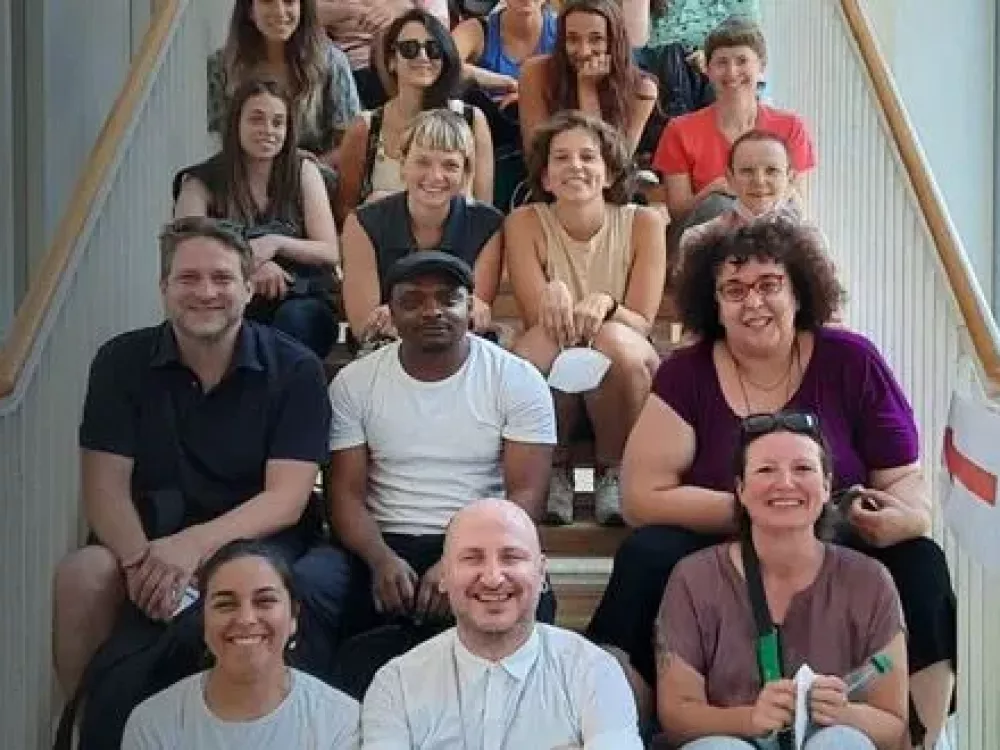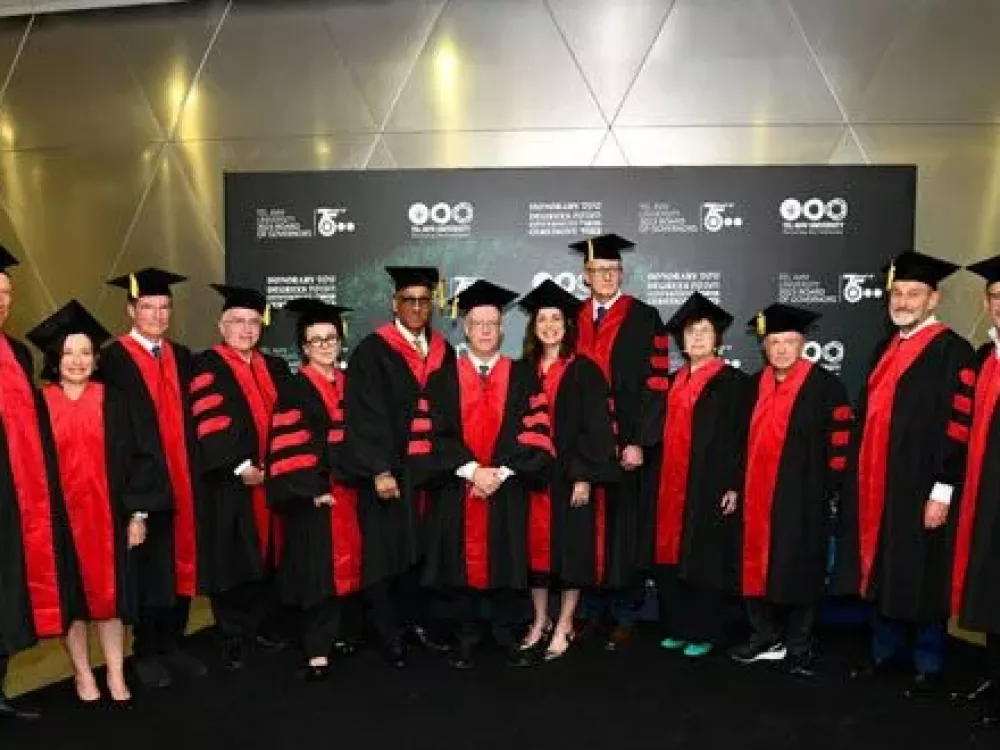
A House is Not a Home Without a Pet
TAU law students are helping elderly citizens and their pets move to senior homes.
Many senior citizens have to part with their beloved pets just when they need them the most: when they leave their homes and transition to live in public housing for the elderly. In many of these governmental institutions, pets are still not allowed – and when they are, the policy is not always implemented. This can cause a painful situation which may harm the mental and physical wellbeing of senior citizens, and affect the welfare of the animals (often senior as well) that find themselves homeless and separated from their loving caretakers.
We have some positive news: There are good people out there who are pro-actively seeking to protect the rights of pet caretakers, as well as the pets’.
Who? Students of The Buchmann Faculty of Law who work through the Clinic for Environmental Justice and the Protection of Animal Rights, an integral part of the The Coller-Menmon Animal Rights and Welfare Program, Israel’s leading and most comprehensive academic program on animal law, at the Faculty of Law. We do realize that’s a mouthful and warrants some further explanation…
Protecting Animals’ Rights
The Clinic for Environmental Justice has been handling a range of environmental issues since 2001. In 2017, it expanded its operations to include the protection of animals’ rights. Through their work at the Clinic, law students get to practice drafting applications, precedents and position papers, closely accompanied by top academics and clinical facilitators from Israel’s legal system.
Dr. Orit Hirsch-Matsioulas researches human-animal relations. She is a post-doctoral fellow of The Coller-Menmon Animal Rights and Welfare Program and one of the founders of The Community for Human-Animal Studies Israel (HASI). Together with Adv. Amnon Keren, Program Coordinator and Clinical Instructor at the Clinic, she made the rights of the elderly and their pets one of the Clinic’s lead projects.
Both Granny and Kitty Benefit
The project was significantly accelerated when the Clinic decided to handle the appeal of a group of senior citizens who were told they were not allowed to bring their pets to their public housing apartments. “The rights of elderly people were violated,” says Dr. Hirsch-Matsioulas. “Some of them decided against moving because they did not want to part with their pets. Noah, the umbrella organization for Israel’s animal protection associations, contacted us, and we got in touch with the Ministry of Construction and Housing to change the existing policy.”
Dr. Hirsch-Matsioulas presented the Ministry with academic studies on emotional, cognitive and health-related benefits of pet relationships for senior citizens. Moreover, she brought a new element to the attention of the Ministry officials, namely the effect of the relationship on the animals.
“We built a multidisciplinary team of people from the fields of law, social sciences, social work, gerontology (i.e. the multidisciplinary study of aging, including physical aspects as well as mental, social and societal implications) and civil society organizations, and we’re working together with the Ministry of Construction and Housing,” explains Dr. Hirsch-Matsioulas.
A temporary policy was established, allowing for the entry and keeping of pets in all public senior homes, called בתי גיל הזהב, under the responsibility of Israel’s Ministry of Construction and Housing. It was widely agreed that this temporary right should eventually become permanent, however this is a lengthy process.
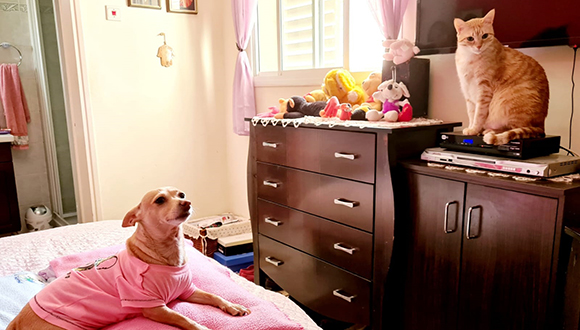
Kitty and Milo also have rights. Photo: Vika Minkowitz Mualem
Focusing on Solutions
While we’re excited to share that this undertaking is, in fact, a global precedent, the process of implementing the policy has not been a smooth ride. Due to Covid restrictions, the team has not been able to enter the senior housing buildings to teach the staff about the new guidelines for successful implementation. “The doors have been opened. Now, we must focus on ensuring the optimal execution,” says Dr. Hirsch-Matsioulas.
Dr. Hirsch-Matsioulas is compiling a report with all the issues that do or may arise. She will then proceed to examine the appropriate solutions for every listed problem, through consultation with relevant professionals. The aim is to come up with suitable solutions for the preservation of the elderly’s right to good health and a dignified life, as well as the preservation of the rights of the animals. Once completed, she will present the list to policy makers to advance the legislation, with the aim that the Ministry of Construction and Housing can adopt the law on a permanent basis.
The arrived upon solutions will be offered, and hopefully adopted, by additional countries as well.
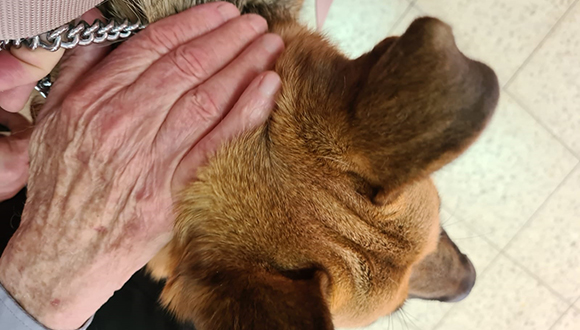
Emotional, cognitive and health benefits enjoyed by both parties. Photo: Vika Minkowitz Mualem
Across Generations and Species
“We intend to visit senior homes, observe and learn, and then to provide cultural programs with positive and educational messages on how to co-exist in a community with multiple living species,” offers Dr. Hirsch-Matsioulas.
“Education is central for promoting change, and we would like to cultivate a new atmosphere on ground through a series of lectures. Children and youth are oftentimes leading agents of change, and we may end up including the grandchildren in this effort.”
“Beyond our firm conviction that the elderly shouldn’t have to part with their pets, that are to them like family members for all intents and purposes, the Clinic also makes sure that the animals’ interests are represented. Forced removal of an animal from a warm and loving home can cause him or her great suffering, especially in old age,” adds Adv. Keren.
“In recent years, there’s been a growing recognition in Israel of animal rights and their welfare, as key considerations in decision-making pertaining to them. We will continue to develop this trend, whereby the animal is regarded as a subject with his or her own rights, each animal representing a world of his or her own and worthy of protection in and by him- or herself.”
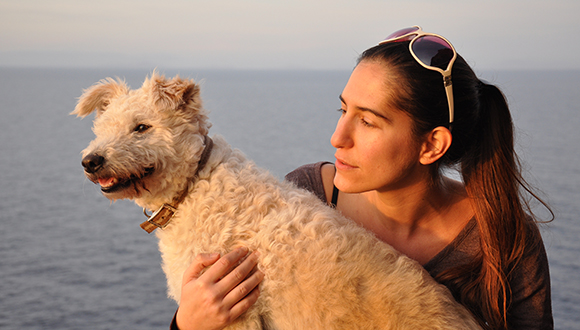
Dr. Orit Hirsch-Matsioulas and her good friend, Shenef.
Featured image: Family and flatmates. Photo: Noah Toledano
Related posts


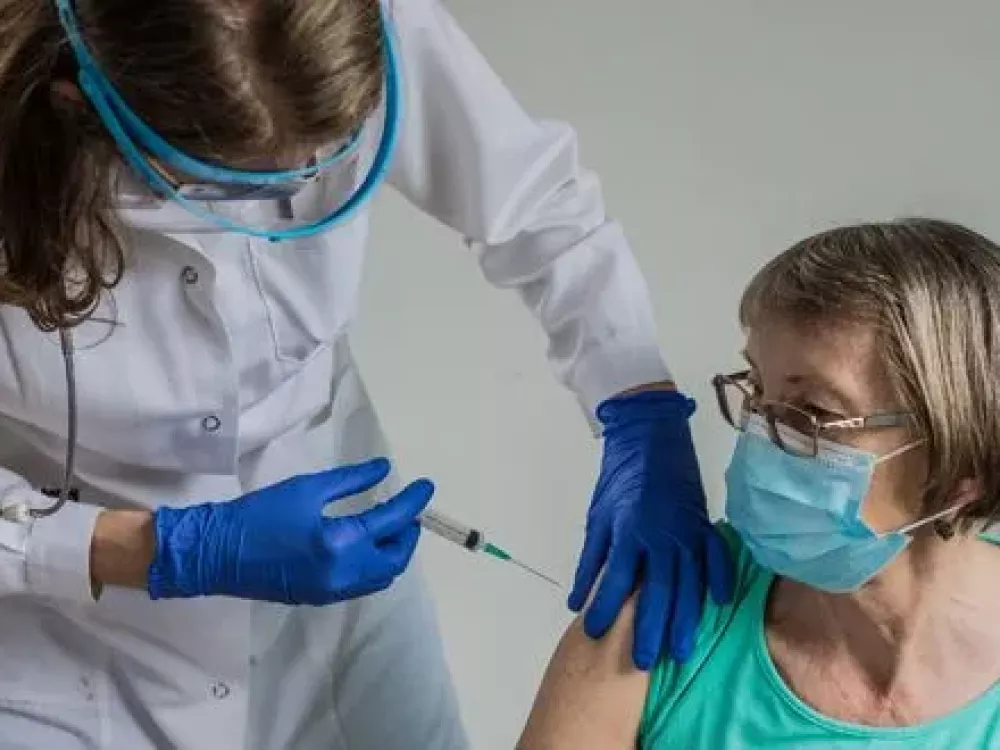
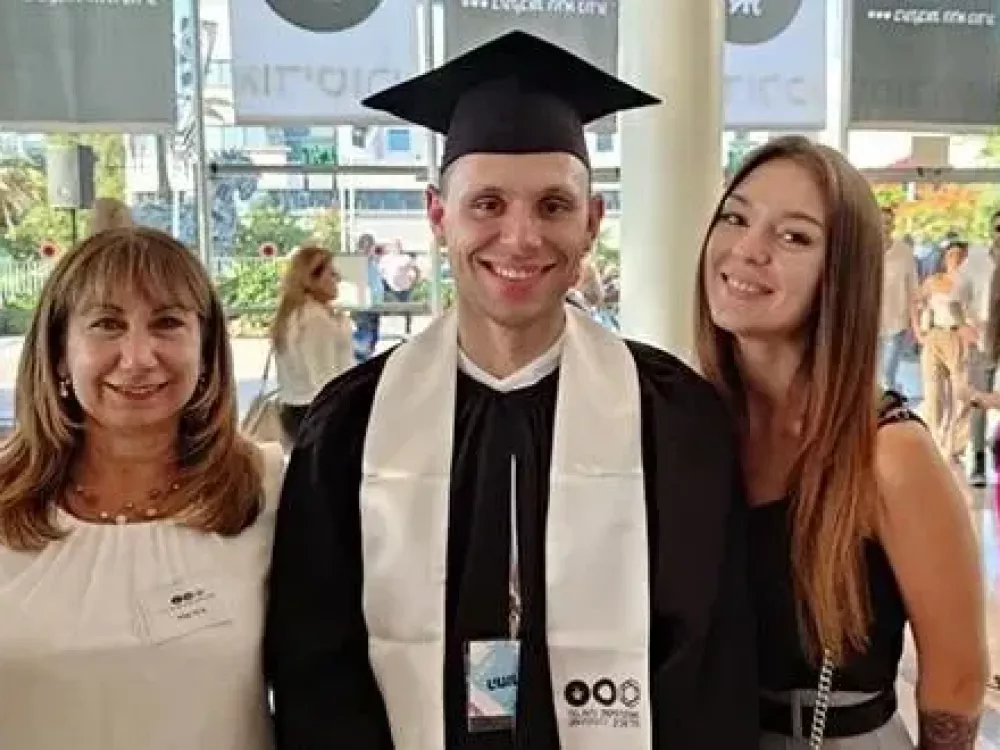
From a Dark Bunker in Ukraine to Graduation Ceremony at Tel Aviv University
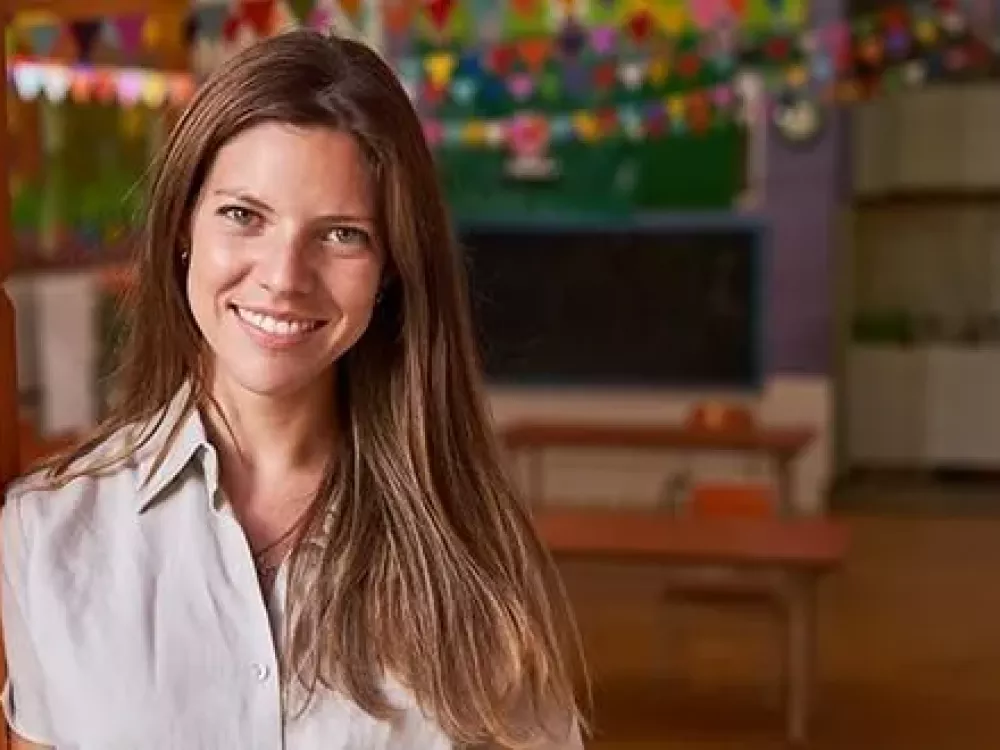
Tel Aviv University Introduces Tuition-Free Teaching Certificate Program
